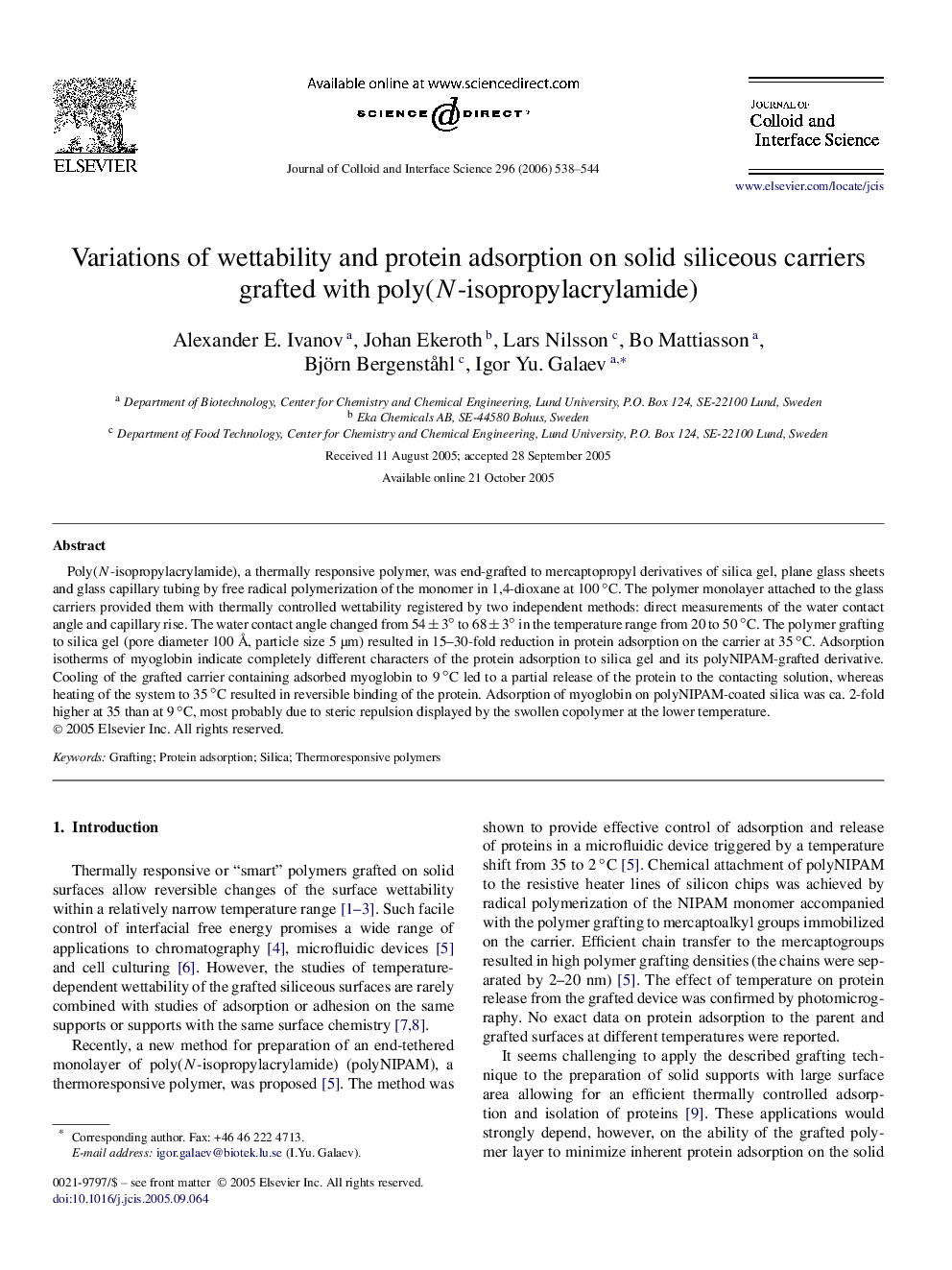| Article ID | Journal | Published Year | Pages | File Type |
|---|---|---|---|---|
| 613746 | Journal of Colloid and Interface Science | 2006 | 7 Pages |
Poly(N -isopropylacrylamide), a thermally responsive polymer, was end-grafted to mercaptopropyl derivatives of silica gel, plane glass sheets and glass capillary tubing by free radical polymerization of the monomer in 1,4-dioxane at 100 °C. The polymer monolayer attached to the glass carriers provided them with thermally controlled wettability registered by two independent methods: direct measurements of the water contact angle and capillary rise. The water contact angle changed from 54±3°54±3° to 68±3°68±3° in the temperature range from 20 to 50 °C. The polymer grafting to silica gel (pore diameter 100 Å, particle size 5 μm) resulted in 15–30-fold reduction in protein adsorption on the carrier at 35 °C. Adsorption isotherms of myoglobin indicate completely different characters of the protein adsorption to silica gel and its polyNIPAM-grafted derivative. Cooling of the grafted carrier containing adsorbed myoglobin to 9 °C led to a partial release of the protein to the contacting solution, whereas heating of the system to 35 °C resulted in reversible binding of the protein. Adsorption of myoglobin on polyNIPAM-coated silica was ca. 2-fold higher at 35 than at 9 °C, most probably due to steric repulsion displayed by the swollen copolymer at the lower temperature.
Graphical abstractFigure optionsDownload full-size imageDownload as PowerPoint slide
